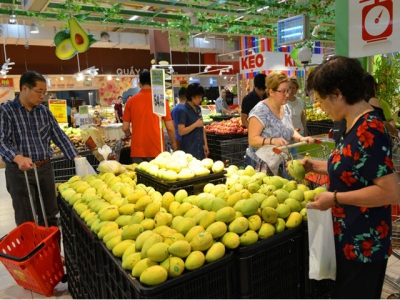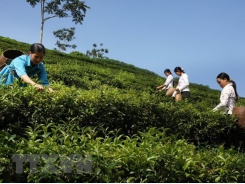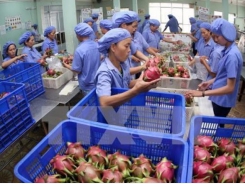Vietnamese mangoes on the go: US licenses imports

Following a decade of patient negotiations, the United States has licensed the import of Vietnamese mangoes. Mangoes will join litchi, longan, rambutan, star apple and dragon fruit on US supermarket shelves, positioning the US as the 40th export market for Vietnamese mangoes.
Vietnam is now licensed to export mangoes to the US
Turning point
On February 18, the Ministry of Agriculture and Rural Development’s Plant Protection Department (PPD) and the US Department of Agriculture’s Animal and Plant Health Inspection Service (APHIS) officially announced the license for Vietnamese mango exports to the US.
According to Deputy Minister of Agriculture and Rural Development Le Quoc Doanh, the license is good news for the agricultural sector and mango farmers in Vietnam, attesting to the high quality and competitive potential of the fruit in the US.
PPD Director Hoang Trung said US consumer purchasing power is high, but mango farms and processing and packaging facilities first have to obtain codes from the PPD and APHIS for management and traceability. All consignments must be radiated with a minimum dose of 400Gy to be granted PPD and APHIS quarantine certificates before shipment. Mango growing localities and businesses also have to meet other PPD and APHIS requirements.
Vietnam expects to export about 3,000 tonnes of fresh mangoes to the US annually, equivalent to nearly one percent of total import volume and almost the same as the US mango output.
Quality and sustainability
By meeting the strict requirements of discerning markets, Vietnamese mangoes, with an annual production value of US$490 million, can become a major export product like dragon fruit, longan and rambutan. All Vietnamese fruit exports to the US are subject to tight controls under various inspection programs and laws.
The US license for Vietnamese mangoes is an opportunity but also a challenge.
Nguyen Dinh Tung, General Director of Vina T&T Group that exports various kinds of fruit to the US, said the harvesting, packaging, transportation and especially preservation of fruit must follow appropriate processes in order to ensure the highest quality of products when they reach consumers.
In his opinion, the customs clearance process will be short if domestic companies seriously abide by regulations. However, if a product is found to contain forbidden preservatives or to be infected with fungal disease, the entire consignment will be examined and domestic businesses will face the risk of losing their export market. This requires serious participation of all parties involved, not only farmers.
According to the Ministry of Industry and Trade, domestic companies need to intensify advertising and take advantage of e-commerce to promote sales.
Related news
Tools

Phối trộn thức ăn chăn nuôi

Pha dung dịch thủy canh

Định mức cho tôm ăn

Phối trộn phân bón NPK

Xác định tỷ lệ tôm sống

Chuyển đổi đơn vị phân bón

Xác định công suất sục khí

Chuyển đổi đơn vị tôm

Tính diện tích nhà kính

Tính thể tích ao



 The sustainable development of fruit trees in southern…
The sustainable development of fruit trees in southern…  Vietnamese farm produce must be proactive to enter…
Vietnamese farm produce must be proactive to enter…